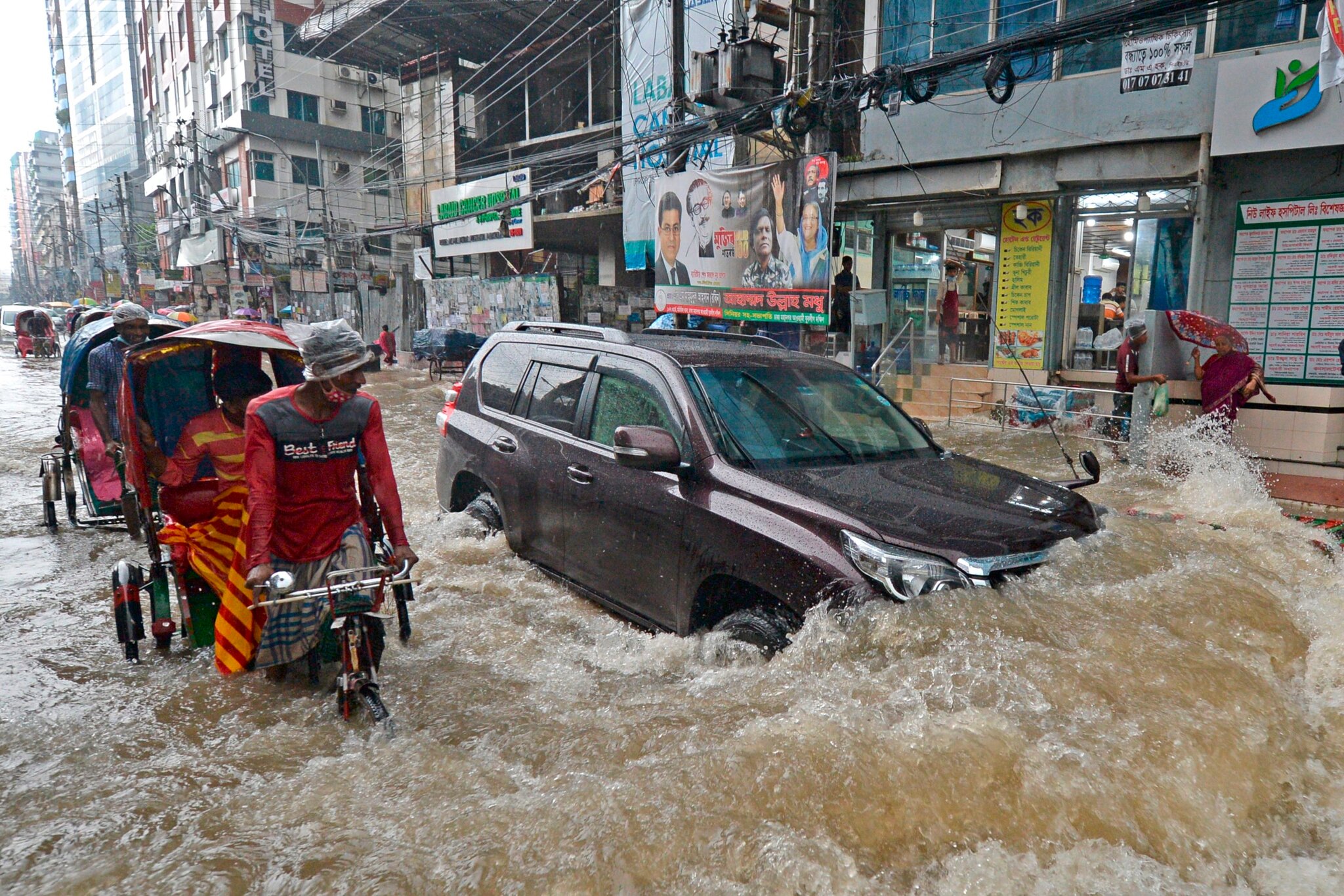In Bangladesh, the flooding of the Brahmaputra reflects the unequal pain of extreme weather.
The floods began in June. In most cases, heavy rains upstream in neighboring India swelled the river basins that flow through Bangladesh before draining into the Bay of Bengal. Those who live along the Brahmaputra are no strangers to flooding. When the river swells, work stops, land erodes, people move to higher ground and wait for the waters to recede. They rely on their savings or aid to feed themselves.
This year was different, though. By the time the river flooded, in June, people were already running out of food, said Mr. Hasan of BRAC.
Because of the lockdown, working people had all but stopped working. Remittances from relatives abroad, many of them newly unemployed, had dried up. In the countryside, people had begun to sell their goats and cattle at bargain prices. They had no food to eat.
When the river first swelled, Taijul Islam, the sharecropper from the Kurigram district in the country’s north, rushed to save his livestock — cattle, goats, chickens, ducks. A few, he rescued. Many, he lost. The river took away the small vegetable garden next to his house, then his house, where he had stashed roughly 1,300 pounds of rice. Then it washed away a small shop that he ran when he wasn’t working on other people’s land. Also the school that his 6-year-old son attended in the village.
All he can think of now is where he can go to earn a living. He is the sole breadwinner of his extended family. All nine of them had been living on rice, boiled potato and lentils. Vegetables are unaffordable, let alone fish or meat, which, he said, “are now unimaginable.”
Akkas Ali, 48, had already been through a bad flood. He moved to Mr. Islam’s village six years ago, when his old village washed into the Brahmaputra. Two weeks ago, as the river rose, breaking through its embankments, his four acres of farmland went underwater. The village mosque and market washed away. So, too, a secondary school where more than 250 children were enrolled. Mr. Ali worried where they would go to school now, if at all.
His house still stood this week, but the river, which had been a quarter mile away, had rushed dangerously close. He was sure it, too, would wash away soon.
The Brahmaputra is a fearsome, shape-shifting 2,400-mile river that erupts from the Tibetan Himalayas and spills into northeastern India before merging with the Ganges in Bangladesh and emptying into the Bay of Bengal. It irrigates vast areas of farmland but it’s also unpredictable, often swallowing the islands that form within it, like the one where Mr. Ali’s village once stood.
Climate change, too, is altering its fate — and that of the people who live along its banks. The rains are more unpredictable and the river is rising above dangerous levels far more frequently than it did before, according to 35 years of flooding data analyzed by A.K.M. Saiful Islam, a water management expert at the Bangladesh University of Engineering and Technology in Dhaka.
The last five years alone have brought four major floods, eroding people’s capacity to adapt, Dr. Islam said.
More and worse floods loom.
Even if average global temperature increase modestly — by 2 degrees Celsius over the average for preindustrial times — flooding along the Brahmaputra in Bangladesh is projected to increase by 24 percent. With an increase of 4 degrees Celsius, flooding is projected to increase by over 60 percent.
No matter what, Dr. Islam said, the country will have to adapt. That requires money to dredge rivers, maintain embankments, improve drainage and offer aid to those who are repeatedly displaced and impoverished.
Advocates for the poor say Bangladesh’s predicament with disasters illustrates exactly why climate negotiations, postponed until 2021, need to deliver compensation for people who have not caused the problem.
“People are losing whatever little they have,” said Farah Kabir, the Bangladesh country director for ActionAid International. “When and how are they going to be supported? When is the global community going to take responsibility?”













Comment